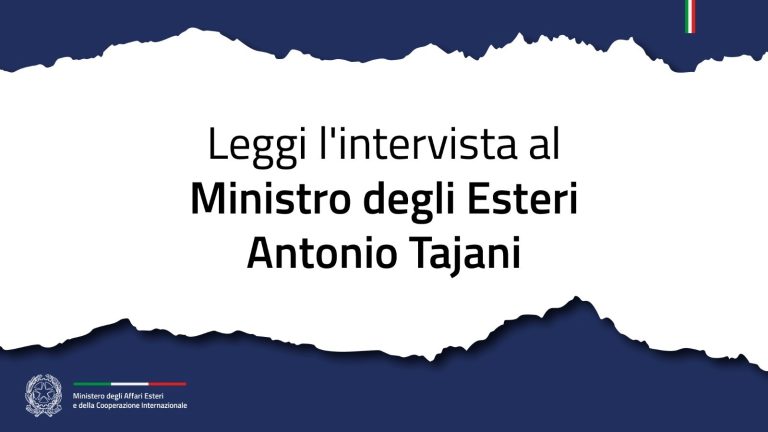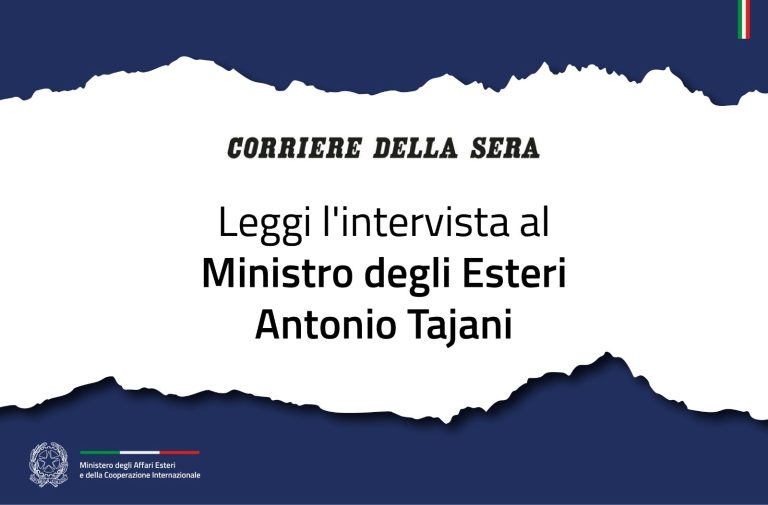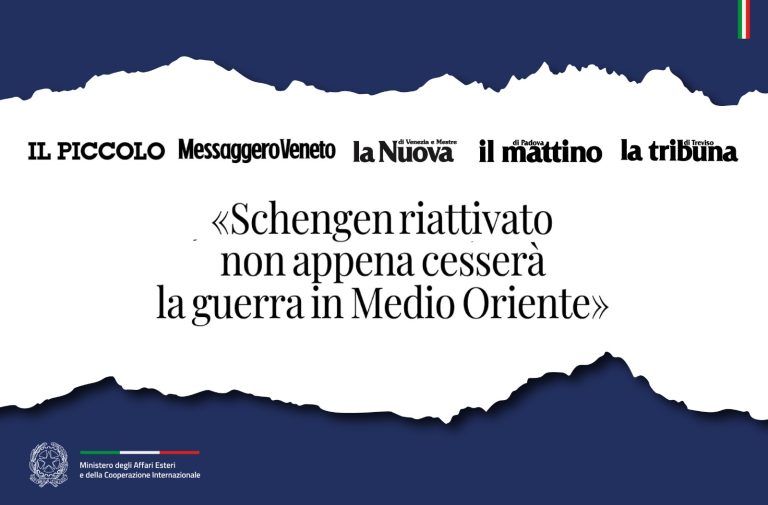The meeting with the foreign ministers of Bulgaria, Albania and North Macedonia dedicated to the “Pan-European Corridor VIII” opens today in Brindisi. Minister Antonio Tajani, why did you choose Brindisi?
“Corridor VIII, which starts in Apulia and arrives on the shores of the Black Sea via Albania, North Macedonia and Bulgaria, is a great European strategic infrastructure, a connection between the economies of Europe and the Balkans. Brindisi is the “gateway” to this connection. In Brindisi we will address the very topics of connectivity and the socio-economic growth of an area where we want to play an increasingly leading role. We want to launch a platform for political dialogue and cooperation between two EU countries – Italy and Bulgaria – and two candidate countries – Albania and North Macedonia – that can also become an example for other Balkan countries and act as an incentive for ever greater regional cooperation”.
During the trilateral summit with Croatia and Slovenia, there was talk of promoting a strategic hub for logistics between Europe and Asia, for port development, maritime safety, and environmental protection, as well as for combating human trafficking in the face of the sharp rise in irregular migrant arrivals from the Balkan route. What role can Brindisi play in this?
“Brindisi, Ancona, and Trieste are the Italian cities in the front line with regard to the Balkans. And the Western Balkans are one of Italy’s foreign policy priorities. I would like to point out that, in addition to the meeting in Brindisi and the one in Ancona, a national strategy was also defined in Trieste last January to strengthen the presence of Italian companies in the Balkan area and a foreign policy and economic growth operation was launched. Now we are meeting in Brindisi: the Adriatic is once again a strategic hub in the Government’s strategy”.
National security is a priority issue: the European integration of the Western Balkans has become even more relevant given the tensions in the area. Does the countries’ path towards Europe need to be accelerated, in response to the events triggered by Russian aggression against Ukraine?
“The Western Balkans can no longer wait to join the EU. The strong demand for Europe and Italy coming from these countries must be answered: we have to give them certainties regarding the integration process, its timing, and above all the final outcome. If we fail to provide answers, we cannot be surprised if they start looking for them elsewhere. Russian aggression against Ukraine reminds us every day about what is at stake. European security would be seriously compromised by this prospect and Italy would be among the countries most exposed to the risks arising from such a scenario, including on the migration front”.
Among the security challenges Italy faces is the management of irregular migration flows.
“If not managed, migration flows will continue to increase. Our strategy in the Western Balkans also consists of continuous and patient diplomatic action to stabilise the region, to avoid increased tensions and thus prevent irregular migration flows. We were successful in bringing the migration issue back to the centre of the European and international agenda. The Conference on Development and Migration hosted at the Farnesina last Sunday was a great success. We were able to lay the foundations for long-term collective action against irregular migration flows”.
Brindisi is also home to the UN and World Food Programme logistics base. Are you going to work to strengthen it?
“The UN’s Humanitarian Response Depot in Brindisi is a logistics hub of fundamental importance also for Italy and Apulia. The Depot serves to manage humanitarian emergencies in many areas of the world and is one of the main logistics instruments of the World Food Programme. The Italian government plans to continue investing in the hub, including by funding its strengthening, and supporting facilities such as schools for the children of international staff. The UN hub in Brindisi has a positive impact on Brindisi and Apulia not only from an economic point of view, but I dare say that it will also enrich the entire Brindisi community both socially and culturally”.
Beside the issues of national security, the economic dimension and the development of new trade are also important aspects. Can Brindisi – initially excluded from the “Pan-European Corridor VIII” – and its port in particular have a role? And what are the prospects for growth and development?
“Southern Italy and therefore Apulia can aspire to become an economic, logistical and energy hub of the Mediterranean. Having succeeded in having Corridor VIII included in the Trans-European Transport Network (TEN-T) was a great success. This is the starting point for the development of Apulia’s ports, which can be put at the service of the Italian, European and Balkan economies. The Italian government strongly believes in this vision and will continue to work in this direction”.





